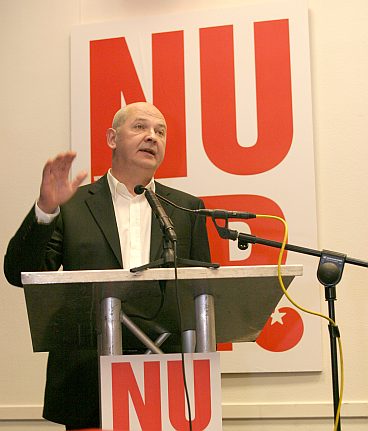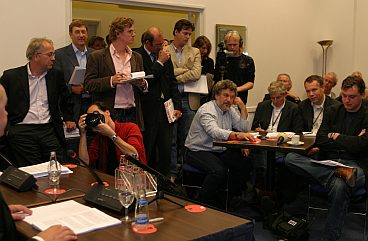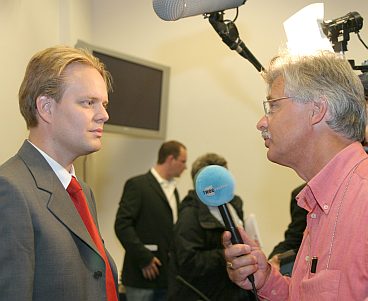SP presents election manifesto: “A better Netherlands... for the same cost”
SP presents election manifesto: “A better Netherlands... for the same cost”
This afternoon saw the presentation in The Hague by SP leader Jan Marijnissen of the SP's draft election manifesto, an event which received unprecedented media attention. Its title, which translates as “A better Netherlands for the same cost” addresses fears that the Socialists in government would prove to be a tax-and-spend party, coupling the promise of improvements with the certainty of higher taxes. It demonstrates how the Netherlands could in fact become a better, more attractive and above all more socially-minded country if after the elections of 22nd November the SP formed part of a progressive government – without incurring extra expense.
“Our new draft manifesto is an open invitation to voters, but also to other parties, to put an end to twenty years of neoliberal policies and open the way to a social alliance with the SP,” said Jan Marijnissen. .

The SP wants to see less interference from Brussels, an active government instead of one retreating from its responsibilities, and most of all a country in which ordinary citizens are able to exercise much more influence. “An end must be put to the runaway increases in scale, frustrating bureaucratisation and pointless mania for control which has come to characterise our health care service, our education system and social security. People must know that they themselves, as concerned and involved citizens, can shape their own country.”

The SP wants substantially more to be invested in education and health care, and resources and opportunities to be distributed more evenly. If the SP forms part of a government the preposterous “no claims bonus”, which discourages people to seek treatment for health problems by reducing premiums for those who do not, will go. Sickness benefit payments and child benefits will be linked to incomes. Parents in need will be able to access support in bringing up their children and ensuring them a decent education, while older people will be offered greater opportunities to remain in their own neighbourhoods after retirement. Technical schools offering vocational education will be reduced in scale and made more practical and effective. Public transport will be free to under-12s and over-65s. More houses will be built and fewer demolished, while tax concessions for mortgage holders will be guaranteed to a level of €350.000 and subsidies for rented accommodation increased. Minimum income will be increased by ten percent and payments for those unable to work through sickness or disability secured.

Financial spokesman Ewout Irrgang explained how all of this could be achieved within the current budget. “We will be spending an extra €11.5 billion. This will be matched by savings of €11.5 billion in other areas of expenditure,” he said. “In view of the expected level of economic growth we will in fact enjoy a surplus of €6.5 billion in the coming years. These conclusions rest on sound foundations and have been verified by the Central Planning Bureau (an official and politically neutral body).”
Implementation of the election manifesto’s commitments would lead to positive macro-economic effects on, for example, purchasing power and employment. Aside from its being perfectly achievable, the programme laid out in the manifesto would contribute to sound state finance, including in the long term. What this means in practice is that under favourable economic circumstances the government, at the end of its four year term of office, would be able to leave the state with a surplus rather than a deficit. Last but not least, the point of the programme is to make the Netherlands a more socially-minded country, one in which social and economic policies effectively tackle poverty and reduce inequalities of income.
- See also:
- Dutch elections
